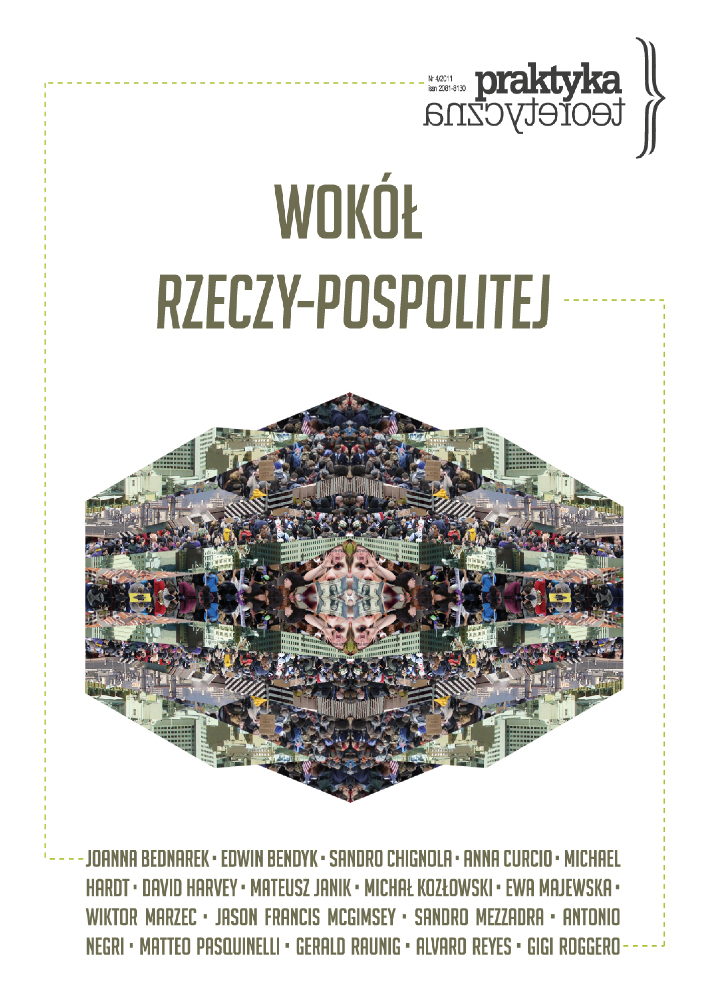Abstract
I present five theses on the common within the context of the transformations of capitalist social relations as well as their contemporary global crisis. My framework involves ‘‘cognitive capitalism,’’ new processes of class composition, and the production of living knowledge and subjectivity. The commons is often discussed today in reference to the privatization
and commodification of ‘‘common goods.’’ This suggests a naturalistic and conservative image of the common, unhooked from the relations of production. I distinguish between commons and the common: the first model is related to Karl Polanyi, the second to Karl Marx. As elaborated in the postoperaista debate, the common assumes an antagonistic double status: it is both
the plane of the autonomy of living labor and it is subjected to capitalist ‘‘capture.’’ Consequently, what is at stake is not the conservation of ‘‘commons,’’ but rather the production of the common and its organization into new institutions that would take us beyond the exhausted dialectic between public and private.
License
“Theoretical Practice” seeks to put into practice the idea of open access to knowledge and broadening the domain of the commons. It serves the development of science, thinking and critical reflection. The journal is published in open-access mode under the CC-BY-NC-SA 4.0 license (detail available here: http://creativecommons.org/licenses/by-nc-sa/4.0/). Articles published in the journal may be freely distributed, stored, printed and utilized for academic and teaching purposes without restrictions.
They should not be, however, used for any commercial purposes or be reconstructed into derivative creations. Access to the journal may not be limited or offered for a fee by any third party.
Prospective authors are obliged to fill in, sign and send back the publishing contract compliant with the CC licencing. [PL.pdf, PL.doc, EN.pdf,EN.doc].
According to this contract, authors grant the journal a non-exclusive right to publish their work under the creative commons license (CC-BY-NC-SA 4.0) without any financial obligation on both sides of the contract.
Before submission authors should make sure that derivative materials they use are not protected by copyright preventing their non-commercial publication. Authors are responsible for any respective copyright violations.
